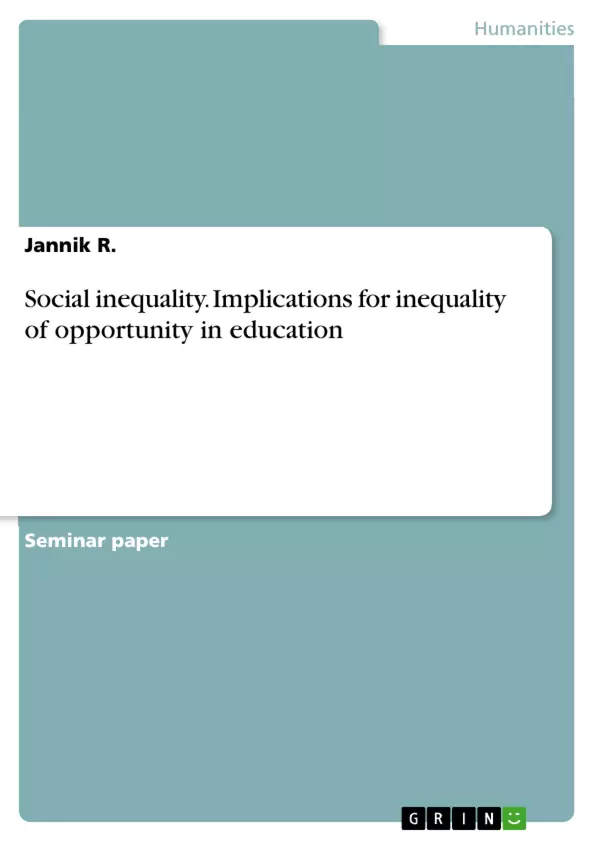Does social inequality affect educational opportunities? This social inequality will be defined and examined in more detail in the paper, based on Schimank and Hradil. In the further course, educational inequality in Germany will then be addressed. Three determinants of social inequality are related to the opportunities in the education system. It is about different chances in the education system due to different social classes, the migration background and the gender.
Here research results and current findings are presented and also the causes for resulting inequality of opportunity in education are addressed. The last part of the paper is then a summary conclusion, which answers the question whether social inequality affects educational opportunities. Finally, the importance of education and equal educational opportunities is highlighted.
Inhaltsverzeichnis (Table of Contents)
- Introduction
- Social inequality
- Emergence of social inequality
- Impact of social inequality on life chances
- Impact of social inequality on educational opportunities
- Social background as a reason for educational inequality
- Migration background as a reason for educational inequality
- Gender as a reason for educational inequality
- Impact of social inequality on educational opportunities
- Conclusion
Zielsetzung und Themenschwerpunkte (Objectives and Key Themes)
This term paper examines the concept of social inequality and its impact on educational opportunities in Germany. The paper aims to define social inequality and explore various dimensions as described by Schimank and Hradil. It will then delve into the influence of social class, migration background, and gender on educational inequality, presenting research findings and current observations.- Definition and dimensions of social inequality
- Determinants of educational inequality
- Social background as a factor in educational opportunities
- Impact of migration background on educational inequality
- The role of gender in educational inequality
Zusammenfassung der Kapitel (Chapter Summaries)
- Introduction: This chapter introduces the concept of social inequality and its relevance to the educational system. It highlights the importance of addressing this topic for the author, who is a future primary school teacher.
- Social inequality: This chapter examines the concept of social inequality, its emergence, and its various dimensions. It outlines Schimank's framework for understanding inequality, including influence potentials and aspects considered socially significant. The chapter also explores Hradil's perspective on intentional and unintentional social inequality and its societal implications.
Schlüsselwörter (Keywords)
The key terms and concepts explored in this paper include social inequality, educational inequality, social class, migration background, gender, influence potentials, opportunities, and the impact of social structures on individuals' life chances. The work focuses on understanding the various dimensions of social inequality and their relationship to educational opportunities in Germany.- Arbeit zitieren
- Jannik R. (Autor:in), 2014, Social inequality. Implications for inequality of opportunity in education, München, GRIN Verlag, https://www.hausarbeiten.de/document/1255653


